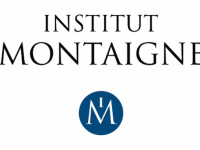Politics
PROGRAMME OF EMMANUEL MACRON FOR FRANCE BY INSTITUT MONTAIGNE
FRENCH THINK TANK

Emmanuell Macron Banner Campaign (Source: Emmanuel Macron)
USPA NEWS -
On Sunday 7th May, the French will be voting in the final round of the presidential election. They have the choice between the centrist candidate Emmanuel Macron (En Marche !) and the extreme right-wing candidate Marine Le Pen (Front National). Institut Montaigne releases the candidates programs.
Emmanuel Macron´s programme includes ambitious measures ““ on unemployment insurance and pensions in particular ““ which could have positive effects on growth over the long term. His investment plan and tax reforms, if they are carried out, could have a positive impact on the economy. However, the lack of clarification on some structural reforms ““ in particular his labour market reform ““ and the fragmented documentation of his savings plan undermine the candidate's growth hypotheses.
1. A NEW UNEMPLOYMENT INSURANCE THAT BRINGS IN SENIOR CITIZENS AND SELF-EMPLOYMENT WORKERSEmmanuel Macron aims to carry out a major reform on our compensation system and establish a new support scheme for unemployed people in order to lower the unemployment rate to 7% by 2022. By proposing to extend unemployment insurance to the self-employed and to self-entrepreneurs, he creates a sort of insurance against the bankruptcy of individual entrepreneurs, likely to encourage entrepreneurial initiatives and, with it, the creation of wealth. The insurance will also be deeply redesigned: the Unedic will be nationalised, monitoring and control of the job search will be strengthened and access to the senior section will be modified. The senior branch, which gives access to more rights in terms of training and duration of compensation ““ 36 months instead of 24 ““, will be rendered available to people over 57 instead of 50 today. A whole range of proposals is added to these measures in order to fight unemployment: so-called "anti-precarious" measures, including a bonus-malus system designed to discourage precarious employment, a five-fold increase in the number of French unemployment advisers, measures for training, etc.-----------------------------------------------------------------------------------------
These reforms entail costs to public finance: the eligibility of those who want to resign once every five years could indeed present the risk of a windfall related to their compensation. Behavioural effects may also be considered, such as the inclusion of additional resignations, increased time spent unemployed as a result of new compensation, and finally the likelihood of an increase in resignations. Coupled with opening the rights to the self-employed, this measure could cost up to €4.8 billion per year. Savings are foreseen as a counterpart to the increase in access to the higher education sector or the increased control of job searches, we estimate them at €2 billion on average per year. On the decline in unemployment, a fundamental criticism can be made: in order to reduce the structural unemployment rate to 7%, i.e. more than 2 percentage points lower, a sufficient growth is not only needed, but also a structural reform of the labour market, in the form of flexibilisation. And since such a reform can be costly in terms of employment when it is implemented (unless the economy is exceptionally good), it must be implemented immediately with a sufficiently accommodative budgetary policy to be feasible. There is, however, nothing very specific about labour market reform in Emmanuel Macron´s programme at this stage. The idea of bonus-malus was, in the minds of its authors (Olivier Blanchard and Jean Tirole) complementary to the flexibilisation of the labour market, i.e. making redundancies easier. Emmanuel Macron´s programme does not seem perfectly aligned with these ideas.
2. MODIFYING THE COMPULSORY LEVIES FOR TAXATION ON HOUSING, WEALTH AND BUSINESS--------------
Emmanuel Macron's programme includes many mandatory tax reforms, affecting both households and business. Among the measures targeted at households, the candidate proposes to exempt 80% of French people from paying residential tax. This measure, which concerns nearly 24 million households, would ease the tax burden on the most modest households, while concentrating the tax on a very small proportion of the households, effectively disconnecting a part of the French population from local expenditure. Its cost, around €8 billion per year, would penalise local and regional authorities, which depend on this tax. However, the candidate asserted that the government would compensate for this loss of income by increasing the funds allocated to municipalities.---------------------------------------------------------------------------------------------------------------
Emmanuel Macron also wishes to reform the French “wealth tax“ (the Impôt Sur la Fortune, also known as “ISF“), which will be transformed into a property tax. Specifically, the candidate intends to exclude from the tax base all investments "which finance the real economy", i.e. securities ““ stocks, savings books or even life insurance ““ to concentrate the tax on the household´s property assets. This proposal, which would lower tax revenues between €1.2 billion and €2.6 billion per year, is part of a broader reform of capital taxation, now subject to a single flat-rate levy.
An analysis provided by Institut Montaigne´s research team and Eric Chaney, Economic Advisor
2
Finally, the candidate proposes to reform corporate taxation, by lowering the tax rate on companies from 33% to 25%, which would lower tax revenues by €11 billion, and by increasing the CSG (Contribution sociale généralisée, a compulsory levy that contributes to funding the Social security) by 1.7 percent. This increase, which is expected to generate additional revenues of around €22.8 billion per year, will finance the elimination of employee contributions, lower employer contributions and purchasing power measures for public servants and independents.--------------------------------------------------
The reduction in corporation tax is a measure that cumulates a strong display effect for investors in general, and an incentive for businesses to grow. While it is difficult to quantify the impact on potential growth, it can only be positive. The perpetuation of the competitiveness and employment tax credit and its transformation into permanent reductions in charges is a good idea as long as it does not become a tax credit, which was its main shortcoming.
3. REFORMING PENSION SCHEMES BY UNIFYING AND HARMONIZING ALL EXISTING REGIMES----------------
Despite the debates on pensions being focused today on whether the legal retirement age should be lowered or raised, Emmanuel Macron claimed that he would not make this issue a priority of his mandate. Instead, he proposes to majorly reform the system by unifying and harmonising the different existing regimes.---------------------------------------------------------
The French system is characterized by its great complexity. There are more than thirty regimes, basic and complementary, each with its own logic and rules. Beyond the intrinsic complexity of each regime, the situation becomes particularly arduous for individuals who have contributed to several schemes. Finally, there are many equity issues: the opacity of the French retirement system constitutes a barrier to professional mobility and contributes to the general uncertainty of the current system, often leading to people building up their own private savings throughout their professional life.
Reference to the Swedish system, often mentioned by the candidate, seems to argue in favour of establishing a system of "notional accounts". The general principle of such a system is the following: during a person´s career, the contributions abound virtual capital. The latter is revalued each year according to a return guaranteed by the public authorities. On retirement, this capital is converted into a pension. Such a system is based on a purely contributory logic with proportionality between the contributions paid throughout the working years and the pensions received during retirement. The transition from the current system to the new system is undoubtedly one of the most sensitive issues of Macron´s programme. It can be long, complex and cumbersome to manage. The calculation of this proposal depends on the conditions of the harmonisation of the plans, which have not been specified by the candidate to date----------------------------------------------------------------------------
In proposing this pension reform, the candidate demonstrates courage and seriousness: the special schemes as a whole and that of civil servants in particular, constitute an important public expenditure item, whether in the form of subsidies or staff costs, and are a cause of inequity between employees, which results in poor allocation of talent. Any further analysis of this measure - its impact on public finances in particular - is, however, hampered by a lack of clarification, and it is not possible today to quantify its effects. However, if the project is carried out successfully, it has a political dimension likely to favour further reforms. Attempts to reform the special regimes have always met with fierce resistance and resulted in severe disruption of the economy. However, the success of this reform depends on a number of parameters: for example, it seems difficult to obtain an alignment of the replacement rate rule without compensation. --------------------------------------------------
4. REFORMING THE EUROPEAN UNION; INTRODUCING A EUROPEAN DEFENCE FUND AND A COMMON BUDGET FOR THE EURO AREA------------------------------------------------------------------------------------------------------------
Macron´s campaign has been pro-European: he proposes to strengthen the European Union and to provide it with new tools, in the service of greater efficiency of its action. This is reflected in two of his proposals: creating a European Defence Fund and establishing a common euro area budget. The European Defence Fund would be used to finance joint military or industrial programmes and to develop research and innovation in the European defence industry. It would allow all European countries to contribute to defence spending, which now ranges from 0.4% of GDP for Ireland to 2.6% of GDP for Greece. The cost of this measure for France would be between €880 million and €1.2 billion per year.---------------------------------------
The introduction of a common euro area budget, a recurring idea since the launch of the single currency, would allow European monetary policy to be accompanied by a far-reaching fiscal policy ensuring a more coordinated policy mix. This budget would act initially as a macroeconomic stabilisation instrument that would enhance the capacity of the European Stability Mechanism (ESM) to act. The level of this Eurozone budget will depend on the ambition of governments. The work carried out on the subject in 1989 by the Delors report called for a federal budget of 2.5% of GDP. If this level were to be chosen, this would represent a budget of €246 billion (based on euro area GDP at €9,860 billion in 2015), in which France, compared with its share in the GDP of the euro zone (€2,181 billion, or 22%), would contribute €54 billion mainly through the transfer of the national budget.
ABOUT INSTITUT MONTAIGNE
A non-profit organisation based in Paris, Institut Montaigne is a pioneering independent think tank established in 2000, which aims to play a key role in the democratic debate. It is a platform for reflections, proposals and experimentations dedicated to public policy in France. It elaborates concrete proposals for the improvement of social cohesion, competitiveness and public finances. Aimed at public authorities, its work is the product of a method of research open to cross-country comparisons and rigorous data analyses. Institut Montaigne brings together business leaders, government officials, academics and leading figures from wide-ranging horizons to promote all of its actions (proposals, public policy evaluations, participation of citizens, experimentations) by publishing reports and organising high level events. Its activity is supported by over 100 companies of different sizes in different industries. Its funding is based exclusively on private contributions, none of which exceed 2% of its annual budget (circa 3.9 million euros). This is the full analysis provided by Institut Montaigne´s research team and Eric Chaney, Economic Advisor. Source : Institut Montaigne
Elections 2017 Candidates France Presidential Institut Montaigne Emmanuel Macron 2nround En Marche Marine Le Pen Rahma Sophia Rachdi
Liability for this article lies with the author, who also holds the copyright. Editorial content from USPA may be quoted on other websites as long as the quote comprises no more than 5% of the entire text, is marked as such and the source is named (via hyperlink).










